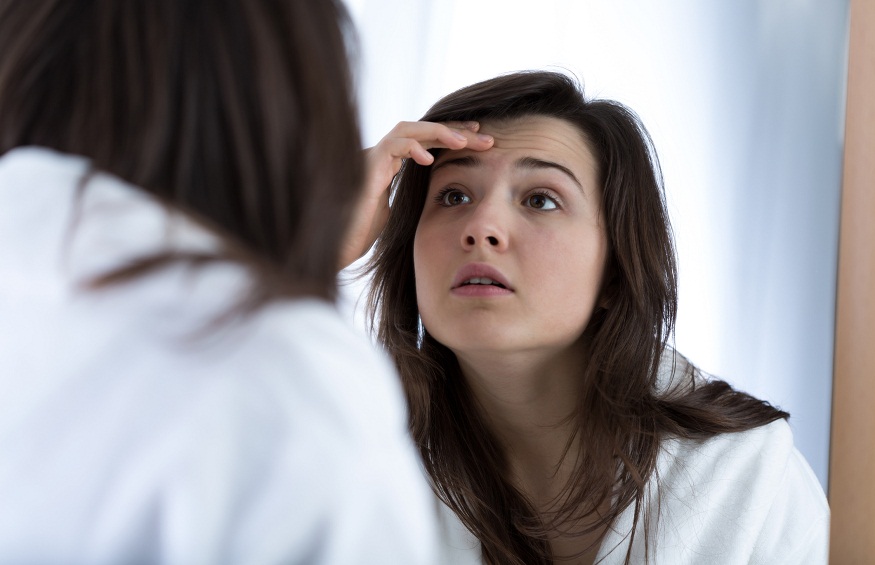Dealing with acne may be difficult! Among a multitude of cleaning items and odd home remedies out there, it can be hard to know what you should and should not do to clear your face. Often it can seem like your skin is difficult to handle, particularly when you wake up and find a big zit. The good news is that there are ways to avoid and treat teen acne.
Pimple starts when a kind of oil called sebum clumps the pores in the skin usually lubricating the skin and the scalp. Acne is normal in puberty when hormones are over-driven, causing the skin to over-produce sebum. Since several oil-producing glands are on the forehead, nose and chin, this area—the T-zone—is where teenagers are most vulnerable to pimples.
Here are several tips to help avoid breakouts and clear them as easily as possible:
Wash your face twice a day no more with warm water and a gentle soap for people with acne. Gently massage the face with circular movements. Don’t scrub it. Over-washing and squeezing can make the skin irritate.
Don’t pop the pimples. It’s tempting, but here’s why you’re not supposed to: popping will drive the contaminated material deeper into the skin, resulting in more swelling and redness, and even scarring. If you find a pill coming before a significant event, such as a prom, a dermatologist will also handle it with less chance of scarring or infection.
Stop scratching your face with your fingertips or leaning your face against items that absorb sebum and skin residues like your phone. Touching your face can spread bacteria that cause pores to become swollen and irritated. To keep bacteria in check, wash your hands before applying something to your skin, such as acne treatment creams or makeup.
You must clean them regularly when you wear glasses or sunglasses, to avoid the oil clamping the pores around your eyes and nose.
Try not to wear tight clothing if you have acne on your body. They may not help the skin to breathe and can cause discomfort. Scarves, headbands, and caps can also accumulate dirt and oil.
When purchasing cosmetics, make sure you pick products that say “non-comedogenic” or “non-acnegenic” on the bottle. Throw out the old makeup that smells or looks different from when you first bought it and make it a habit to remove makeup before going to sleep.
Keep your hair clean and out of your face to avoid extra dirt and oil from clogging your pores.
Cover the skin from the sun. It may seem like a tan covers acne, but it’s just temporary. A tan will make your acne worse not boost it. Tanning also causes skin damage that can ultimately lead to wrinkles and raise the risk of skin cancer.
Don’t forget to wash your pillowcase and your phone! Dirt and bacteria can be spread from your phone, pillowcase, and everything else that brushes your face and blocks your pores. Clean your pillowcase around once a week and clean your phone with an antibacterial wipe every few days.
Infact, if one can religiously follow this information below, it would only help to corner the acne influx:
Using a mineral makeup, preferably a cream. Powder mineral makeup is completely inert, which ensures that the makeup cannot support the growth of bacteria.
Use antibacterial soap or benzoyl peroxide to wash your back and other parts of your body where you have acne.
See a dermatologist if your skin doesn’t react to the counter items. Some types of acne are harder to kick and require stronger treatment. Dermatologists may recommend stronger topical and/or oral prescription acne medications such as Retin–A or Accutane for the treatment of more serious acne.
After washing your face, wait 20 to 30 minutes to apply non-oily products. This will make the skin feel less susceptible to stronger creams like Retin–A.
Speak to a dermatologist if you’re concerned about acne. Dermatologists provide a variety of therapies that help prevent and prevent acne marks. A dermatologist can help you find the treatment option that is best for you and can also give you a lot of helpful advice about how to treat acne and how to treat your skin type. Some of the salons and spas have certified skin specialists, called estheticians, who can provide advice and medication for acne. Follow this guide and limit the spread of acne!




